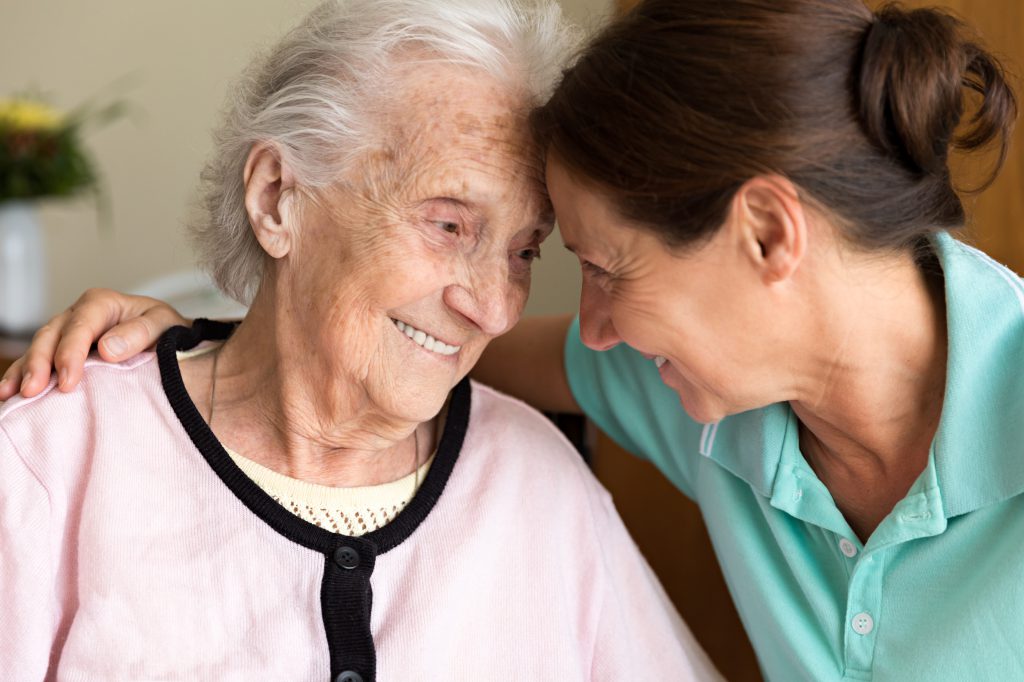While A Dignified Life by Virginia Bell and David Trowel provides guidance for a caregiver on how to be a “best friend” to his/her loved one with dementia, it cannot be disputed that this book itself is truly a “friend” to any caregiver seeking a strengths-based approach to caregiving. If you are looking for tips and immediately applicable advice, move this book to the top of your planned reference list.
Authored by dementia care experts, who have worked in the field since the mid-1980s, right from the beginning, you know with every page turn that you are going to be getting counsel that can be trusted. When the book was first published in 2002 (and there have been multiple revisions since then), it was the first comprehensive approach or philosophy of care specifically tailored to family caregivers. The authors state “this books has a simple premise–that what the person with dementia needs is a best friend, someone who understands, is supportive, communicates, and encourages activity and engagement.”
An introductory overview to dementia
In Part 1, caregivers of a loved one with a new diagnosis are offered a good overview of Alzheimer’s disease and other forms of dementia and how it might manifest in impacted individuals. Common emotions and experiences are reviewed as well as answers to typical questions caregivers might have. Especially helpful are the “Best Friends Pointers” callouts through the book. In the respective callout in this section, Bell and Towel remind caregivers that their loved ones with dementia are “working very hard to make sense of their world, to see through this confusion and loss.” They state that it is helpful for dementia caregivers to think specifically about the experiences of their loved ones as a way to overcome their own denial about the situation. “An Alzheimer’s Disease Bill of Rights” is another gem found in this section as it guides caregivers on how to preserve a loved one’s dignity throughout this challenging, degenerative journey.
The transitional path to becoming a friend to your loved one with dementia (from that of being son/daughter, sibling, or spouse) begins with the basics of The Best Friends approach being outlined in Part II. A very practical list of principles is outlined here under a resource reprinted in the book with permission as entitled “What is a Best Friend?” With statements like “FRIENDS BUILD SELF-ESTEEM,” “FRIENDS LAUGH TOGETHER OFTEN,” and “FRIENDS ARE EQUALS” you can see how this book offers a quite different perspective than traditional caregiving models.
Using personal stories in dementia caregiving
The personal stories that are woven throughout also offer practical examples of how the wisdom offered in the book can be applied. Honoring a loved one’s personal story is a big part of becoming his/her friend. Bell and Towel state that “best friends are the memory . . . for people with dementia,” and this is why they believe also that “it is so important to know and use the Life Story in all aspects of caring for a person with dementia.”
Another key idea found in the book is recognizing the characteristics of those who just seem to have a “knack” for dementia caregiving. By identifying and practicing the behaviors of those that have a “knack,” the authors state that all caregivers can achieve this level. They even offer a rating system that caregivers can use to monitor how well they are doing with “knack.” The ultimate level of achievement is to be among those caregivers we all have seen that seem to have according to Bell and Trowel, “the magic touch” with those individuals battling dementia.
A final section of the book most importantly focuses on caregivers being their own best friend and identifying ways to “live with dignity.” A key to living with dignity as someone who supports a person with Alzheimer’s disease or another form of dementia is practicing self care. In one poignant statement in the book, Bell and Trowel state “the Best Friends approach is a life raft being thrown to you–a chance to redirect disappointment, anger, and pain and instead find joy in day-to-day caregiving.”
Dementia caregiving is a challenging journey. Learning how to be a best friend to both yourself, as the caregiver, and your loved one with dementia, could make all the difference. A Dignified Life by Virginia Bell and David Trowel comes highly recommended by our dementia experts at St. John’s as a way to find much needed joy in the caregiving process.







